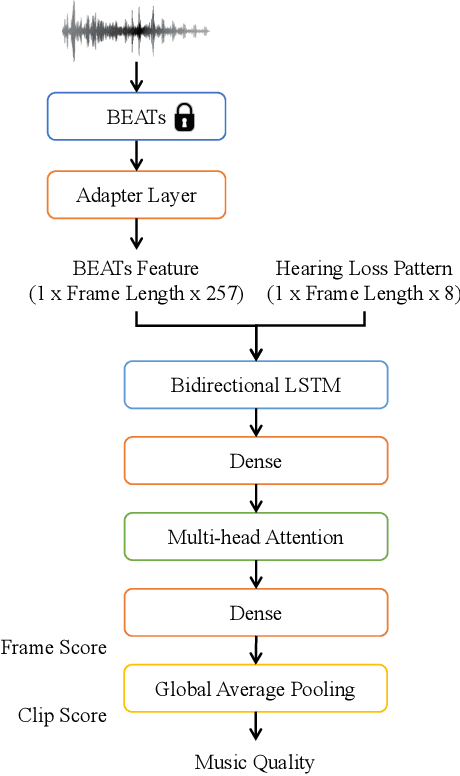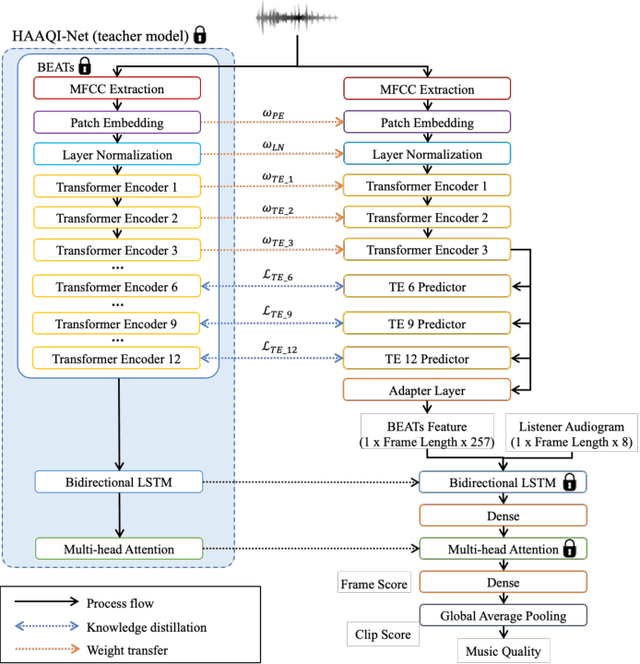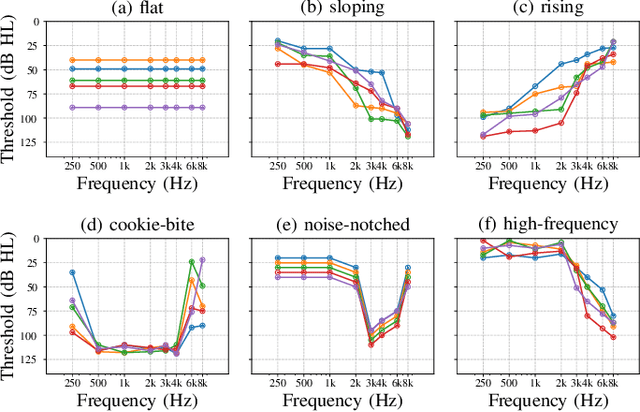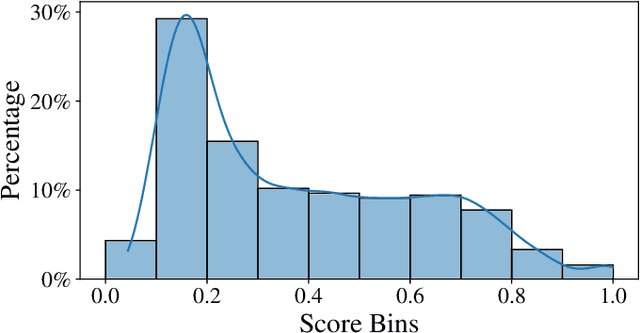Epri Pratiwi
HAAQI-Net: A non-intrusive neural music quality assessment model for hearing aids
Jan 02, 2024



Abstract:This paper introduces HAAQI-Net, a non-intrusive deep learning model for music quality assessment tailored to hearing aid users. In contrast to traditional methods like the Hearing Aid Audio Quality Index (HAAQI), HAAQI-Net utilizes a Bidirectional Long Short-Term Memory (BLSTM) with attention. It takes an assessed music sample and a hearing loss pattern as input, generating a predicted HAAQI score. The model employs the pre-trained Bidirectional Encoder representation from Audio Transformers (BEATs) for acoustic feature extraction. Comparing predicted scores with ground truth, HAAQI-Net achieves a Longitudinal Concordance Correlation (LCC) of 0.9257, Spearman's Rank Correlation Coefficient (SRCC) of 0.9394, and Mean Squared Error (MSE) of 0.0080. Notably, this high performance comes with a substantial reduction in inference time: from 62.52 seconds (by HAAQI) to 2.71 seconds (by HAAQI-Net), serving as an efficient music quality assessment model for hearing aid users.
 Add to Chrome
Add to Chrome Add to Firefox
Add to Firefox Add to Edge
Add to Edge